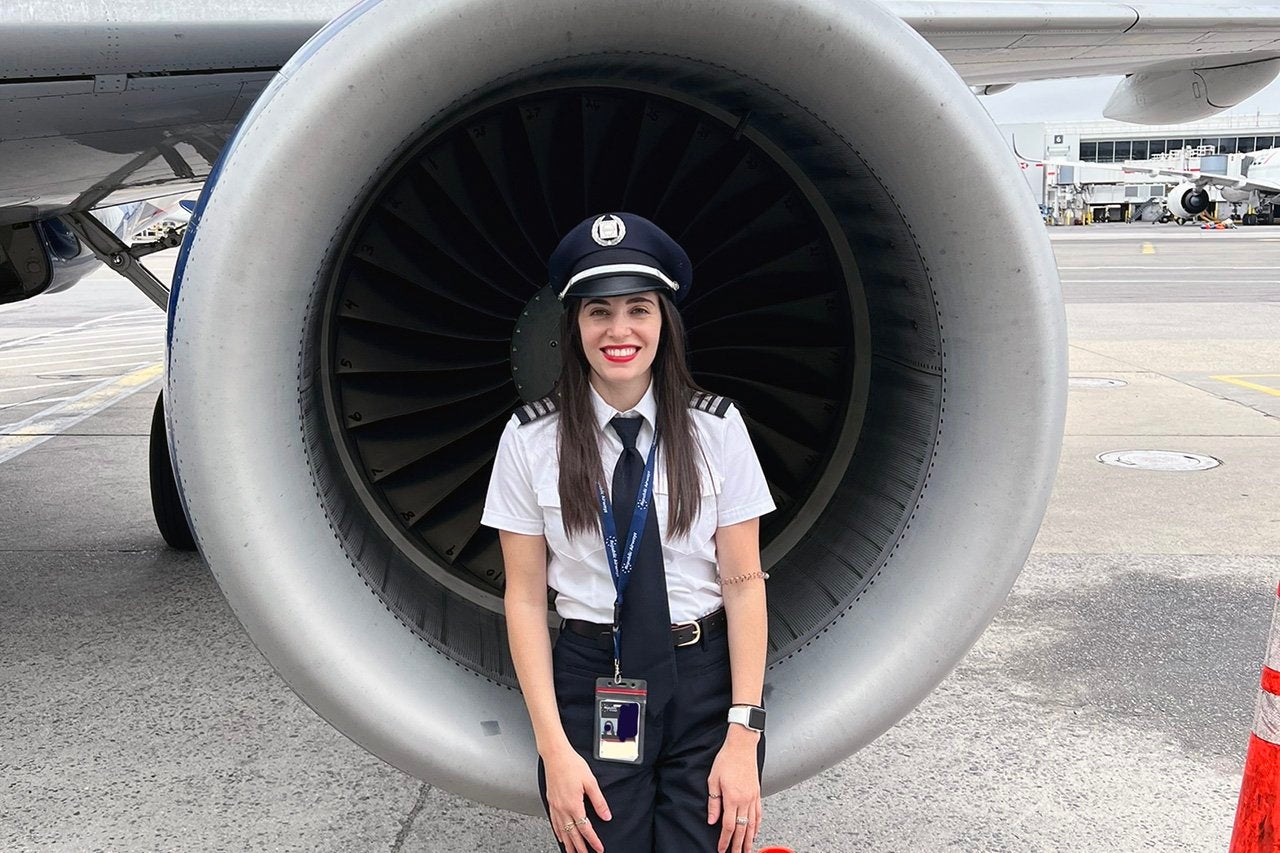Not many airline pilots start out as a flight attendant as Mollie Warren ’16 did, but thanks to Delta’s pilot development program, which provides a leave of absence, mentorship opportunities and other resources, Warren started flying for Republic Airways in February.
She is now a first officer based in Louisville, Kentucky. A double major in business administration and hospitality and tourism management while at the College of Charleston, Warren worked in the Charleston wedding and event planning industry for about a year before deciding she wanted a career that allowed her to travel full time.
She is now part of the 5% of pilots who are women, a number she thinks will increase in the years to come. And she’s certainly doing her part.
“I make sure that every young girl that sees me walking through the airport or is on one of my flights gets a pair of wings from me and knows there’s a place up front for her too!” she says.
The College Today caught up with Warren between flights to hear about her promotion from the galley to the cockpit.
What made you want to become a pilot after being a flight attendant for a few years?
After I finished flight attendant training, I was based in Seattle and my first assignment was a redeye (overnight flight) to JFK. When the pilots need a bathroom break, the flight attendants go up to the flight deck to guard their seats, so that night was my first experience in a real flight deck. The captain raved about the views from his seat, his career path and lifetime of wonderful memories. He encouraged me to pursue the pilot career, and I was hooked from that day on. Funny enough, my first flight as a first officer was a flight to JFK.

Warren in the flight deck.
Was the transition difficult?
The transition was quite difficult but very worth it. It required a lot of determination and grueling days at times. I worked through my pilot ratings during the height of COVID-19 when my flight attendant schedule was reduced. There is a series of licenses that one has to achieve to get to the commercial airlines. Each of these includes a series of written, oral and practical flight exams. After I earned my Certified Flight Instructor (CFI) license, I taught other students how to fly small planes for a year. I juggled both the CFI teaching job and flight attendant job, which required many seven day work weeks. It was extremely rewarding to be able to help others achieve their flying goals and share everyone’s successes.
What was the hardest part about learning to fly?
The hardest part is probably learning how to land, funny enough. There are a variety of factors that go into landings including weather and wind calculations, runway condition, aircraft weight, etc. These factors are always changing so it makes each landing an enjoyable and sometimes challenging experience.
How did the College help you prepare for your career?
What do you love most about your job?
It’s very special to work for a commercial airline and be a part of each passenger’s journey. We are taking people to new places for a variety of reasons; I love to speak with as many as I can to connect, celebrate or support the best I can. I love seeing peoples’ happiness on their first flight or lending a helping hand if someone is having a tough day. It’s delightful to takeoff in one city and have a nearly 360-degree view of the sky and later land in a new city!
What do you love most about flying?
I love that every flight brings something new. Each takeoff and landing bring new challenges and learning experiences, and we constantly get to meet new people and learn how to work with different crew-members. The Embraer 175 is also very fun, smart jet to fly.
 What’s your favorite memory or two from your job?
What’s your favorite memory or two from your job?
There are times when you stumble upon amazing events in layover cities that feel surreal. For example, I was in Paris when France won the World Cup in 2018, and in Nice during the Cannes Film Festival. A special moment during my final trip as a flight attendant was staying at The Charleston Place Hotel where I worked during my time at CofC (a fun full circle moment!) and stopping by campus to see some former professors.
What advice do you have to other women breaking into male-dominated fields?
My advice to other women is don’t be deterred by negative comments. There will always be people upset about your progress and success, but other opinions don’t matter. Be confident in yourself and do the right thing no matter what.




